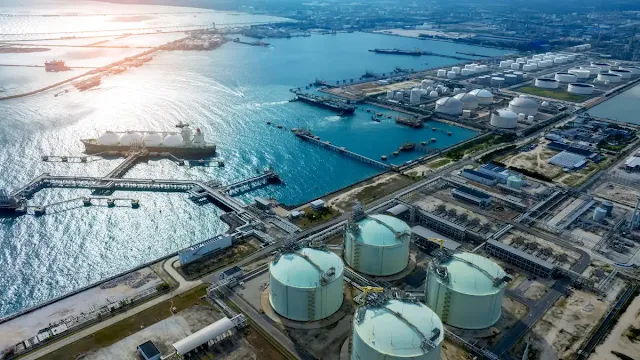In a significant policy shift, President Joe Biden has announced a freeze on approvals for new liquefied natural gas (LNG) export permits, signaling a recalibration of the nation's energy strategy. This decision, influenced by environmental concerns and the need for comprehensive climate assessments, underscores the administration's commitment to adopting sustainable energy policies.
Background:
As the world's foremost LNG exporter, the United States is putting a temporary halt to further gas export expansions until a thorough evaluation of climate considerations can be conducted. This move aligns with the administration's broader vision of fostering a greener and more sustainable energy landscape.
Key Points:
Climate-Centric Decision Making: Acknowledging the climate crisis as an urgent priority, President Biden's announcement places a hold on all pending export permits, showcasing a shift away from solely economic considerations. The administration aims to incorporate critical climate considerations that have evolved since the last assessment five years ago.
Impacts on Planned Gas Export Projects: The decision affects the planned development of at least four new gas export terminals along the Gulf of Mexico, including the controversial Calcasieu Pass 2 (CP2) facility. Recognized as a potential "carbon bomb," the facility's fate now rests on the results of the upcoming climate assessment.
Comprehensive Climate Tests: The administration plans to conduct a comprehensive analysis of LNG exports, considering their impacts on energy costs, national security, and the environment. This holistic approach reflects a commitment to addressing the evolving landscape of climate considerations.
Methane Emissions and Environmental Impacts: Recent studies emphasizing the environmental impact of methane, a primary component of LNG, have influenced the decision. While historically considered a cleaner alternative to coal, the administration recognizes the need to address methane leaks during transport, contributing to elevated lifetime emissions.
Public Support and Political Dynamics: The announcement has garnered support from environmental advocates, with 60% of US voters expressing favor for limitations on gas exports. As the Biden administration approaches the upcoming elections, this move is positioned to resonate positively with a voter base concerned about environmental sustainability.
International Implications: Critics argue that the pause may impact Europe's energy security, but analysts anticipate a shifting landscape with increased reliance on renewables. The decision is expected to bolster US credibility on the global climate stage, showcasing a commitment to addressing climate change concerns.
Industry Perspectives: Industry groups have criticized the pause, framing it as a potential loss for American allies and a win for Russia. Proponents argue that existing LNG infrastructure is sufficient to meet demand, making further expansion unnecessary.
